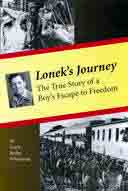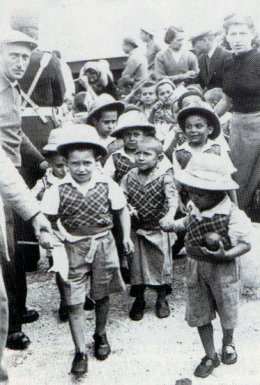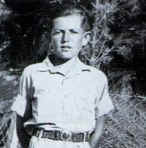|
Highlights of upcoming, current, and recent major news
items, including interviews and speeches.
Other events are throughout the site, according
to category, such as Speaker, Articles to Read, and Foreign Press.
|
|
"Lonek's
Journey: The True Story of a Boy's Escape to Freedom," by Dorit Whiteman is now
available!

Adults who read "Escape via Siberia" wished for an edition they
could give to their children and grandchildren. Now they
can! By
popular demand, Dorit Whiteman wrote a fascinating,
inspirational children's book based on her book, "Escape via
Siberia." Published by Star Bright Books.
Click here to read about
this new book,
pre-publication reviews from children, and a sample
chapter.
Order the book from the publisher.
Order the book from Amazon
Order the book from Barnes and Noble.
|
|
|
In May 2006, Dr. Dorit Whiteman was invited to lecture in
Austria. The invitation was based on her three books: The
Uprooted - A Hitler Legacy; Escape via Siberia - A Jewish
Child's Odyssey of Survival; and Lonek's Journey - The
True Story of a Boys Escape to Freedom as well as her 0p-ed:
"The Meaning of Restitution or The Mouse that Roared." The
participating sponsors were: The University of Vienna, the
University of Salzburg, the University of Klagenfurt and the
Literaturhaus. The audiences consisted of undergraduate and
graduate students, faculty and the general public. Among the
topics were:
1. The Experience of Jewish Children of the Anschluss
[Hitler's take-over of Austria] and its Aftermath.
2.The Rescue of 1000 Jewish Orphans during World War II
|
|
|
In May 2006 at a special ceremony in Vienna at the Jewish
Museum, a scholarship was awarded to a needy Jewish girl in the
name of Dr. Whiteman's mother,
Dr. Lily Stern-Bader, and grandmother,
Regine Stern. They had owned and directed a
girl's boarding school, the Pensionat Stern, which was very
advanced for its time. Its mission was to prepare girls for
higher education and provide a high cultural and intellectual
background for them. The school was taken over by the Nazis
after Hitler's take-over of Austria. The scholarship's
purpose is to maintain the memory of the school's outstanding
achievement. The scholarship is for 20 years. Dr.
Whiteman proudly participated in the ceremony. She spoke about
the need to remember the past. Although Jews have practically
disappeared from Austria, their contributions to Austrian
culture need to be remembered. To read excerpts from Dr.
Whiteman's remarks at the Scholarship Dedication Ceremony and
about her remarkable mother and grandmother,
click here.
|
|
|
|
April
2006: presentation in Nassau County: "
What is it like to write a book?" |
|
|
|
Interview: Peculiar Calculations.
Der Standard, Vienna, January 28th, 2006.
|
|
|
|
"Der Fall Whiteman" (The Whiteman Case) was broadcast by ORF
(Austrian public broadcast), Radio �1, program "H�rbilder", on
Saturday, October 22, 2005, 9.05am |
| |
|
Op-ed
published in Der Standard, Vienna September 24/25, 2005,
The Meaning of Restitution or The Mouse that Roared. |
|
Dorit Whiteman is featured in a movie about the current
lives of eight Jewish women, who are Holocaust refugees and live
in the United States.
Click
here for details.
|
|
|

This is the fascinating account
of the only Kindertransport that ever emanated from
Russia. In the middle of World War II, almost a thousand orphans
who were released from Russian gulags were to be transported to
Palestine. Their journey was stymied by the Iraqis who refused
them transit visas. Stuck in Tashkent, a helping hand was
extended by the English and American governments. In turn they
were vitalized by a small group of Hadassah women who through
endless persistence and resourcefulness managed to bring the
attention of the world to these forlorn children. By horse
driven cart, rickety cattle trains and leaky ships over heavily
mined seas, accompanied by hunger, deprivation and illness, the
children's circuitous eight months route led through Iran, the
Persian Gulf, Pakistan, Yemen, the Red Sea, Egypt and finally
Palestine.
|
|
Dorit Whiteman
did a
presentation on Saturday, May 1, 2004 at Woman Space in
Manhasset, New York. She told about the
against-all-odds survival story of an eleven year old
boy and other Polish Jews who fled to Russia. This elegy to the
human spirit was open to the public and well
attended. |
The true story of eleven year
old Lonek, who battled history. Lonek's
circuitous journey to freedom began when he was
hidden inside a pile of hay, and smuggled from
Poland into Russian-occupied Lvov. In Lvov, Lonek was caught by
the Russians and deported to Siberia. But this devastating turn
of events, like many others in his suspenseful saga, turned out
to be a "blessing" in disguise. How so? Only because
Lonek had been deported to Siberia did he narrowly miss the
invasion of Lvov by the Germans, who massacred all of the city's
Jews.
After enduring
several years in a Siberian labor camp, Lonek joined the
"Teheran Children." The Teheran Children were Jewish
orphans who were, through ingenious means, rescued from Russia
during the middle of World War II largely through the determined
efforts of a small group of Hadassah women. Typical of the
Teheran Children, Lonek covered tens of thousands of miles of
war-torn terrain during his flight to freedom by foot, horse
driven carts, rickety cattle trains and leaky ships that
traversed heavily mined seas.

In her
presentation, Dr. Whiteman explains how the fates of the
Polish Jews in Russia often hinged upon unseen political power
plays. For example, during frequent international negotiations
over the borders of Eastern European countries during World War
II, a single line drawn down a map by a bureaucrat could
hermetically seal thousands of hapless Jews within hostile
countries, and occasionally open escape routes for others.
Dr. Whiteman
also explains how an escapee's small act of courage,
inventiveness or resourcefulness often made the difference in
unforeseeable ways between life and death. |
|

